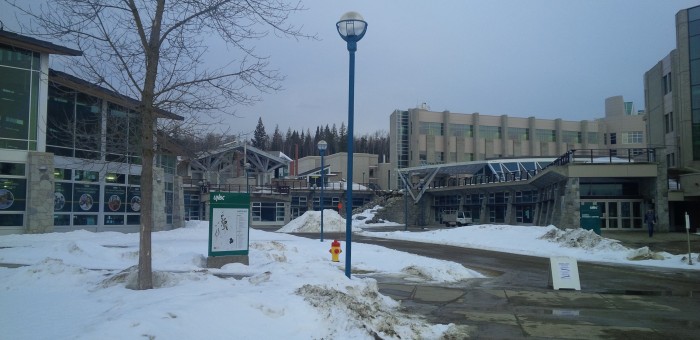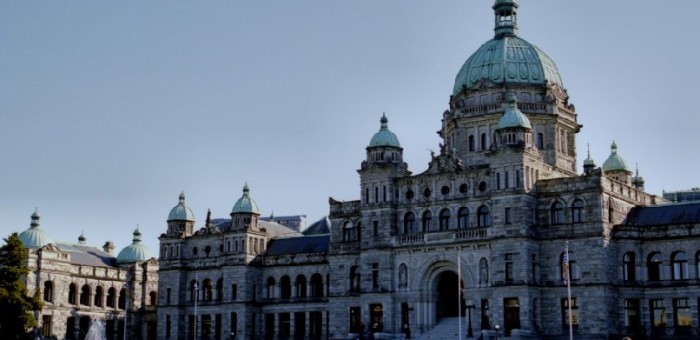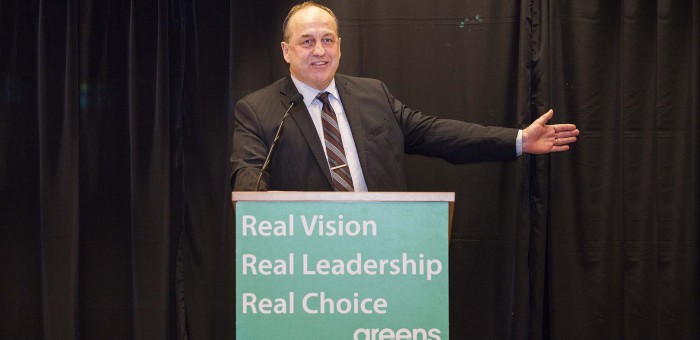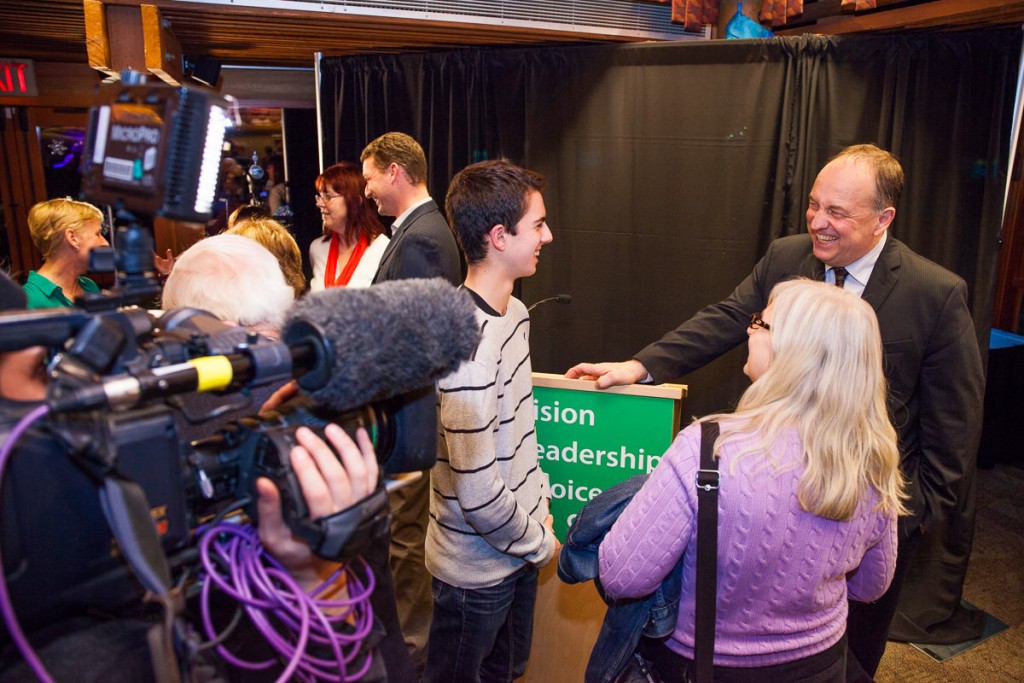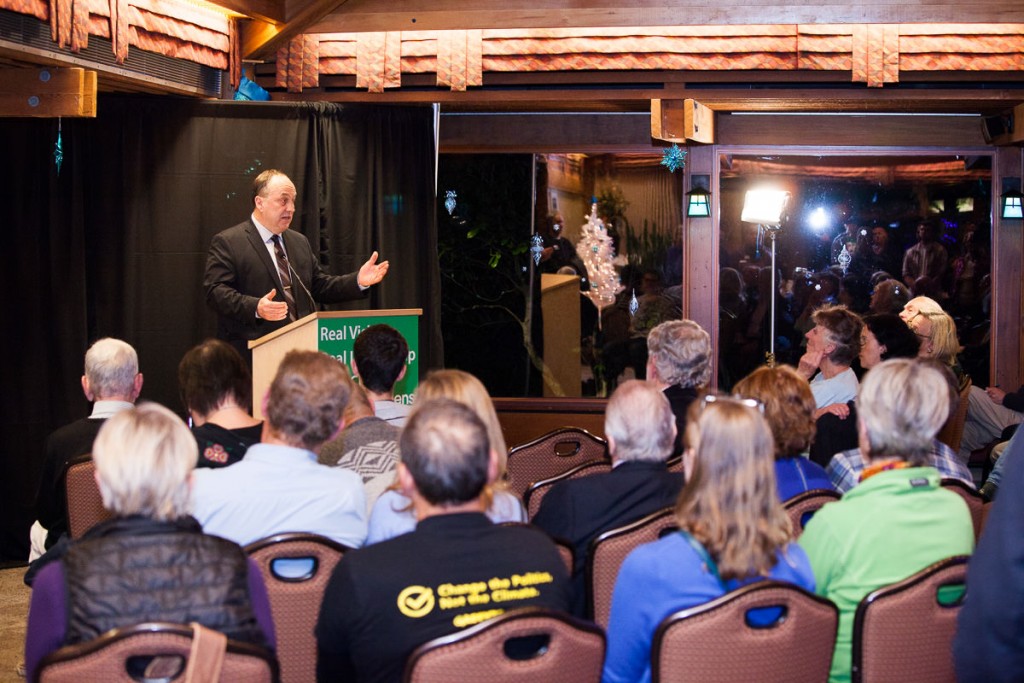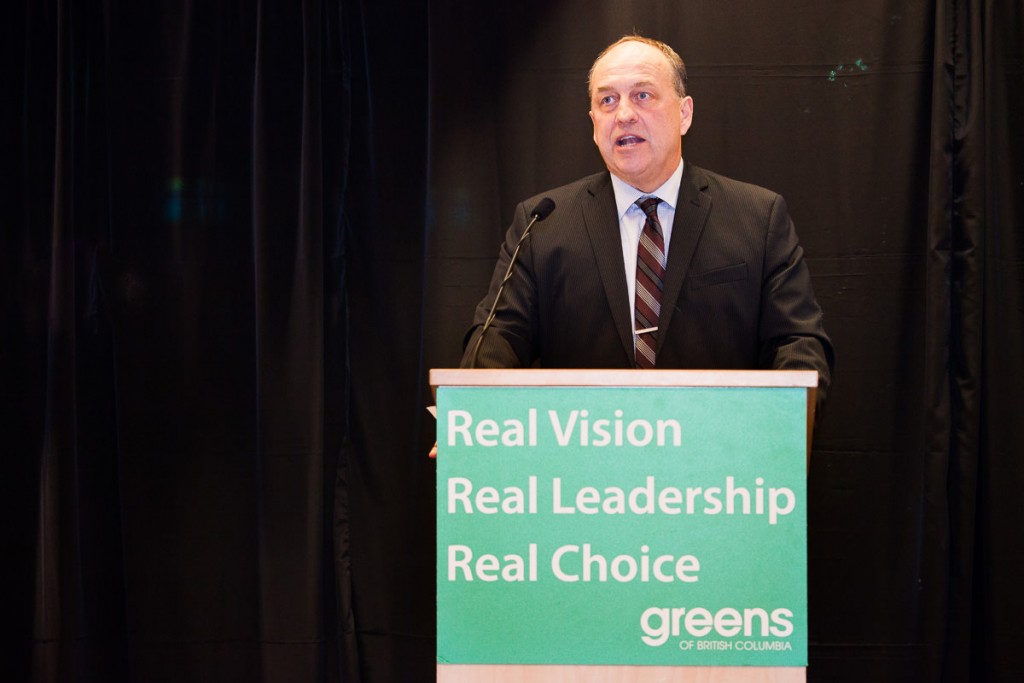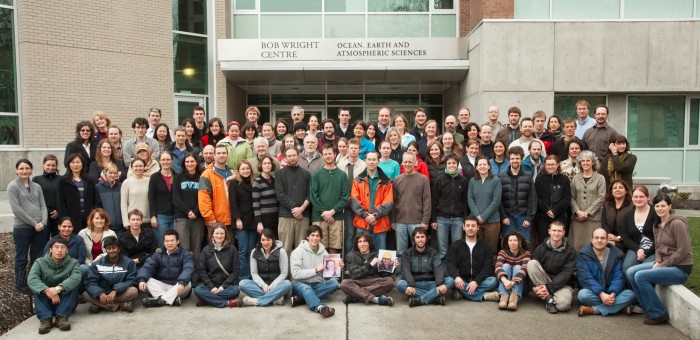Education
Ensuring Independence of University Boards — Bill M202
Today in the legislature I introduced a private member’s bill entitled Bill M202 University Amendment Act, 2016. The purpose of this bill is to halt the creeping government interference in university governance, an issue I have previously raised in the past.
In a recent article in the Georgia Strait entitled Arvind Gupta, Andrew Weaver, and the future of B.C.’s Universities, author Charlie Smith threw out a challenge. It was a challenge that I accepted.
The independence of a University Board is critical. The purpose of a university is to educate people who can critically assess information to allow them to participate in an informed manner in a democracy. It’s a place that allows for innovation and creativity to flourish. It’s not a place for government to impose a top down imposition of its ideology. Unfortunately, under existing legislation the government has the potential to interfere in ways that could undermine that autonomy.
The potential of political interference is unacceptable for our institutions of higher learning. My hope is that the government takes my suggestions for solving this issue seriously and takes action on this issue immediately to preserve the independence of our academic institutions.
Below I reproduce the text and video of the speech I gave as I introduced the bill. I also include the accompanying media release.
Text of my Speech
A. Weaver: It’s also with great pleasure that I move introduction of a bill intituled University Amendment Act, 2016.
Motion approved.
A. Weaver: I’m sure members are aware of the two significant controversies that have plagued two of our universities recently: the controversy between the UBC board and the past president of UBC, Dr. Arvind Gupta, and the recent controversy concerning the decision to appoint James Moore as chancellor of UNBC.
In both these instances, the conflict arose because of the decisions the board made or in how the board acted. While the role of a board of governors is essential to the functioning of a university, the governance of a university must also be independent of any potential real or apparent political interference. It’s with this in mind that I bring this bill forward today.
This bill amends the University Act to ensure that appointees from the Lieutenant-Governor-in-Council cannot unilaterally set the tone and direction of a university board through having a majority of votes and that university boards cannot unilaterally appoint a chancellor for their university.
This bill will bring British Columbia to the same university governance standards employed by much of the rest of Canada.
I move that this bill be placed on the orders of the day for second reading at the next sitting of the House after today.
———
Bill M202, University Amendment Act, 2016, introduced, read a first time and ordered to be placed on orders of the day for second reading at the next sitting of the House after today.
Video of my Speech
Media Release
Media Release: February 11, 2016
Andrew Weaver – University Boards Need More Independence
For Immediate Release
Victoria B.C. – Andrew Weaver, Leader of the BC Green Party and MLA for Oak Bay-Gordon Head, is offering concrete steps for how the BC Government can remove the potential of political interference in University Boards.
“The independence of a University Board is critical. The purpose of a university is to educate people who can critically assess information to allow them to participate in an informed manner in a democracy. It’s a place that allows for innovation and creativity to flourish. It’s not a place for government to impose a top down imposition of its ideology” says Weaver. “Unfortunately, under current legislation the government has the potential to interfere in ways that could undermine that autonomy.”
Today Andrew Weaver introduced a bill in the BC Legislature that, if passed, would remove the ability of a Board of Governors to appoint a Chancellor, and that would reduce the number of provincial appointees on University Boards.
“It is highly troubling to me that the majority of University Board members at universities in our province are appointed by the provincial government. Equally troubling is that the University Board of Governors appoints a university’s Chancellor.”
In 2008 the BC Liberals amended the University Act to allow the University Board of Governors to appoint a university’s Chancellor. The BC NDP started this trend in 1997 by allowing the Board of Governors at the Technical University of BC to appoint its Chancellor.
“At UBC we’ve seen the Board of Governors interfering in a behind-the-scenes way to push out the University’s President,” says Weaver. “At UNBC we’ve witnessed the highly controversial appointment of a Chancellor. Even the Board itself was highly divided on the appointment – it only passed by one vote.”
The main concern with what has occurred at UBC and UNBC is that politically appointed members on both University Boards may have taken intrusive actions into the direction that these universities are taking. This in turn has huge implications for the governance of universities across the province.
“The potential of political interference is unacceptable for our institutions of higher learning. My hope is that the government takes my suggestions for solving this issue seriously and takes action on this issue immediately to preserve the independence of our academic institutions.”
Media Contact
Mat Wright – Press Secretary Andrew Weaver MLA
1 250 216 3382
mat.wright@leg.bc.ca
Legislative Assembly’s 2016 Summer Tour Program
Each spring the Legislative assembly of British Columbia invites post-secondary students from across Canada to participate in the Summer Tour Program. As Tour Guides and Parliamentary Players, these students bring parliamentary procedure and British Columbian history to life for countless students and visitors.
The Summer Guide Program is a four-month opportunity for students to gain work experience providing educational tours to the general public about the Legislative Assembly. Summer Tour Guides must be enrolled at an accredited post-secondary institution with public speaking experience and the ability to communicate fluently in English and a second language.
Likewise, the Parliamentary Players Program is a four-month opportunity for students to gain work experience in the field of applied theatre. Actors will perform roles as significant historical and political figures from B.C.’s past. Parliamentary Players must also be enrolled at an accredited post-secondary institution with theatrical experience and be able to convincingly portray historical characters and creatively ad-lib with visitors.
Applications for the Summer Tour Guides Program and the Parliamentary Players Program are due by December 31st, 2015. For more information on these programs and how to apply, please visit the Legislative Assembly of B.C.’s Job Postings webpage.
Leadership of the BC Green Party
At the UVic University Club on November 24, 2015 I formally announced my intention to seek the leadership of the BC Green Party. And on December 7, 2015 I was elected by acclamation as our new leader. Below is the text of the speech that I gave at the announcement. In the speech I outlined the reasons why I sought the leadership and I offered a vision for a prosperous future for all British Columbians.
Introduction
Thank you Elizabeth. You’ve been an absolute inspiration to me. And I am honoured that you were able to make it to tonight’s event knowing that you will be heading to the COP21 meeting in Paris imminently.
I’m also very grateful to Claire Martin for coming over from Vancouver to act as our MC. I know that she’s also off to COP21 shortly. And I am especially grateful to Butch Dick from the Songhees nation for welcoming us tonight.
Finally, this event tonight would never have happened if it weren’t for the efforts of the incredible group of individuals that I have the honour of working with: Judy Fainstein, Mat Wright, Evan Pivnick and Karin Lenger along with all of the volunteers. Thank you.
It’s humbling for me to see so many people here. I sincerely appreciate you all joining me this evening and I look forward to answering your questions and chatting with you one on one afterwards.
The University Club in which we stand has a special meaning to me. It first opened in 1967 in the old army hut that stands today as E-Hut. I remember as a little boy being taken by my parents to visit Santa at the annual Christmas parties, including the very first one they hosted. Over the years I’ve had many dinners and attended countless functions in the old E-Hut facility. And in 1982, when Phase II of the University Club was completed — the building we are in now — I had just started my final year of undergraduate studies.
I left Victoria in 1983 and it wasn’t until 1992 that Helen and I returned to our hometown. As a young faculty member I joined the newly created School of Earth and Ocean Sciences, appropriately located in E-Hut, the former location of the University Club. In 1992, if someone would have told me that I would be standing in the University Club as the elected BC Green Party MLA for Oak Bay Gordon Head, I would have thought they were crazy.
I was a scientist. I was a teacher and I had no interest in politics.
Yet two decades later, in the fall of 2012, Jane Sterk, after a number of previous attempts finally convinced me to run in the May 2013 provincial election.
I had spent many years understanding the basic physics of the past, present and future climate system. It became evident that global warming was emerging as the defining challenge of our time, and that there were enormous opportunities available to those jurisdictions that were first to act boldly in transitioning to a low carbon economy.
I advised governments at all levels on available policies that could allow them to seize those opportunities. And I saw British Columbia begin to show leadership by doing just that.
But as the government then shifted all of its efforts, and all of its hopes, to the LNG pipedream, I saw us lose that leadership. I watched as we went from leaders in developing a 21st century economy, to laggards, scurrying back to the 20th century, hoping for an out-dated and unrealistic LNG windfall. For three years now I’ve been saying the same thing. The economics simply does not work for BC to build a thriving LNG industry any time soon.
As I watched our provincial leadership unravel, I was reminded of something I would tell my students. If you want your government to show leadership on the issues that you care about, I would tell them that you need to elect people who will act on your concerns. Or, if you feel like none of the candidates is seriously addressing the issues you are worried about, you should consider running for office yourself.
Ultimately, I decided that I needed to take my own advice. I ran for office because I saw an opportunity to help build a vision that would put our province on a path of developing a 21st century diverse and sustainable economy. Now, after 2 1/2 years in office, it’s clear to me that this is more important than ever.
In the shadows of the massive challenges that we face, our province needs new leadership.
Leadership that offers a realistic and achievable vision grounded in hope and real change.
Leadership that places the interests of the people of British Columbia — not vested union or corporate interests— first and foremost in decision-making. And it’s not only today’s British Columbians that we must think about, it’s also the next generation who are not part of today’s decision-making process.
Leadership that will build our economy on the unique competitive advantages British Columbia possesses, not chase the economy of yesteryear by mirroring the failed strategies of struggling economies.
Leadership that will act boldly and deliberately to transition us to 21st century economy that is diversified and sustainable.
Leadership that doesn’t wait for public opinion — but rather builds it.
It’s clearer to me now than ever before. The province needs new leadership bringing new ideas, new direction and new people to the legislature. For too many decades British Columbia has had to put up with our two-party dichotomy of dysfunction.
On the left there’s the BC NDP. Frankly there’s nothing new or anything particularly democratic about the BC NDP. On the right we have the BC Liberals. And there is absolutely nothing liberal about the BC Liberals.
Too often British Columbians vote for the BC Liberals not because they like what they stand for, but rather because they dislike what the BC NDP stand for. Too often British Columbians vote for the BC NDP not because they like what they stand for, but rather because they dislike what the BC Liberals stand for. And therein lies our opportunity.
The BC Greens will offer British Columbians candidates, ideas and policy that they can vote for, instead of vote against. It’s time for us to create a third viable option.
And so, with the knowledge of the opportunities and challenges that lie ahead, I announce my candidacy for the Leadership of the BC Green Party.
To an Economic Vision for the 21st Century
We have a unique opportunity in British Columbia to be at the cutting edge in the development of a 21st century economy.
Our high quality of life and beautiful natural environment attract some of the best and brightest from around the globe —we are a destination of choice. Our high school students are consistently top ranked — with the OECD specifying BC as one of the smartest academic jurisdictions in the world. And we have incredible potential to a create clean, renewable energy sector to sustain our growing economy. When we speak about developing a 21st century economy — one that is innovative, resilient, diverse, and sustainable — these are unique strengths we should be leveraging.
Unfortunately, instead of investing in a 21st Century economy, our government has banked all its hopes on an irresponsible, unrealistic fossil fuel windfall, with its Liquefied Natural Gas sector. We are already seeing these promises unravel as we chase a falling stock, doubling down on the way.
A 21st century economy is sustainable — environmentally, socially and financially. We should be investing in up-and-coming sectors like the clean tech sector, and creative economy that create well-paying, stable long-term, local jobs and that grow our economy without sacrificing our environment.
We should be using our strategic advantage as a destination of choice to attract industry to BC in highly mobile sectors that have difficulty retaining employees in a competitive marketplace. We should be using our boundless renewable energy resources to attract industry that wants to brand itself as sustainable over its entire business cycle, just like Washington and Oregon have done. We should be setting up seed funding mechanisms to allow the BC-based creative economy sector to leverage venture capital from other jurisdictions to our province. Too often the only leveraging that is done is the shutting down of BC-based offices and opening of offices in the Silicon Valley.
We should fundamentally change the mandate of BC Hydro. BC Hydro should no longer be the builder of new power capacity. Rather, it should be the broker of power deals, transmitter of electricity, and leveller of power load through improving British Columbia power storage capacity. Let industry risk their capital, not taxpayer capital, and let the market respond to demands of cheap power.
Similarly, by steadily increasing emissions pricing, we can send a signal to the market that incentivises innovation and the transition to a low carbon economy. The funding could be transferred to municipalities across the province so that they might have the resources to deal with their aging infrastructure and growing transportation barriers.
By investing in the replacement of aging infrastructure in communities throughout the province we stimulate local economies and create jobs. By moving to this polluter-pays model of revenue generation for municipalities, we reduce the burden on regressive property taxes. Done right, this model would lead to municipalities actually reducing property taxes, thereby benefitting home owners, fixed-income seniors, landlords and their tenants.
Yes, we should be investing in trade skills, as described, for example, under the B.C. jobs plan. But we should also be investing further in education for 21st century industries like biotech, high tech and clean tech. It’s critical that we bring the typically urban-based tech and rural-based resource sectors together. Innovation in technology will lead to more efficient and clever ways of operating in the mining and forestry industries. Just last week, for instance, I was told the story of a BC-based technology innovator partnering with a local mine to dramatically improve the efficiency and environmental footprint of their mining operations. Rather than hauling thousands of unnecessary tonnes of rock to a crusher for processing, the new technology allowed the rocks to be scanned for gold content on site. This meant that prior to trucking, the company could determine if it was more cost-effective to simply put the rock to one side for use as fill later.
Natural gas has an important role to play. But, we should use it to build our domestic market and explore options around using it to power local transport. BC businesses such as Westport Innovations and Vedder Transport have already positioned British Columbia as an innovative global leader in this area.
We should be investing in innovation in the aquaculture industry, like the land-based technologies used by the Namgis First Nation on Vancouver Island who raise Atlantic salmon without compromising wild stocks.
The logging industry is booming yet we send record amounts of unprocessed logs overseas. Now is the time to retool mills to foster a value-added second growth forestry industry.
These are just a few ideas that could help us move to the cutting edge in 21st the century economy.
Fundamental to all of these ideas is the need to ensure that economic opportunities are done in partnership with First Nations. And that means working with First Nations through all stages of resource project development – from conception to completion.
To the issue of Affordability
A 21st century economy must also be an affordable one.
Right now, over half a million British Columbians are currently living in poverty. Today’s report issued by the BC Child and Youth Advocacy coalition noted that one in five children overall in BC live in poverty. More than 50% of children in single-parent families live in poverty. This is unacceptable.
The government responds to these facts with the same old mantra: It can’t do more until the economy grows. Yet, we hear year after year from the government that the economy is growing. The fact is, we have seen growth, we have money to invest, and we know that if we invest capital smartly we will actually save in operating costs. So let me offer just one or two ideas of where we should start:
Let’s fix the Registered Disability Savings Plans and Registered Educational Savings Plans. Currently, RDSPs and RESPs do not receive the same protection that RRSPs and RRIFs do when a family or individual is faced with bankruptcy. This means that when faced with bankruptcy, these already vulnerable individuals lose the one thing that would otherwise provide a glimmer of hope for a financially stable future. By simply providing creditor protection for disabled individuals and children’s education funds we can make the pathway out of poverty that much easier for those individuals experiencing bankruptcy. And let me be clear: This is a policy change—it doesn’t cost anything.
At the same time we know from other jurisdictions, that by providing chronically homeless individuals with a home through Housing First Policies, we not only provide individuals with a basic human right — shelter — but also better health outcomes, all while realizing long-term, overall net savings to government.
Medicine Hat saw a 26% decrease in emergency shelter use in just four years and has housed over 800 people, including over 200 children. Utah has reduced chronic homelessness by 72% as of 2014. A housing first pilot project in Denver, Colorado found emergency related costs and incarceration costs declined by 72.95% and 76% respectively, while emergency shelter costs were reduced by an average of $13,600 per person. Canada’s own At Home/Chez Soi study found that for every $10 invested in housing first services there was an average savings of $21.72.
And we need to deal with rampant speculation in our housing market. Simple steps like closing the Bare Trust Loophole would be effective. Or, as I introduced in a private members bill earlier this year, providing government the means of determining who is purchasing property in B.C. This includes determining both foreign investment flows, the role that corporations are playing in purchasing property and if we have significant speculation coming from other places in Canada.
The solutions to our province’s affordability crisis are out there, and those solutions themselves are affordable. We just need to invest in them. Given everything we know, the question becomes this: how can we afford not to?
To the issue of Health Care
The need for affordability must extend to quality health care too.
We can be proud that B.C. was recently ranked the healthiest province in Canada. This ranking shines a positive light on the healthy lifestyle choices British Columbians make each day. Yet, while we celebrate our successes, we must also remember that our health care system faces serious challenges.
With a highly regressive health care funding system, an aging population, major gaps in primary care, and surgery waitlists lasting anywhere from months to years, it is time for government to take a serious look at how our Health Care System is funded and administered.
British Columbia is the only province in Canada that continues to charge MSP premiums. Such premiums unfairly burden low and fixed income British Columbians with an overly heavy tax burden. With individuals earning a net annual income of $30,000 paying the same monthly flat fee as those earning $3,000,000 per year, it is evident that MSP premiums are perhaps the most regressive form of taxation in B.C.
Instead of charging MSP premiums, we should look at shifting to alternative, more progressive options such as was done in Ontario and Quebec. Rather than flat-rate fees, health premiums can be paid through the personal income tax systems. This avoids the regressive effects of flat-rate premiums and diminishes the additional costs associated with administering the MSP program.
But it can’t stop there. We also need to address the growing gaps in primary care. Doctor shortages and long wait times to get an appointment have led to increased use of walk-in clinics and emergency room services. Unfortunately, this can be costly for both patients and our health system, as a lack of follow-up and co-ordination can mean problems are missed or poorly managed.
Let’s look at investing more in Nurse Practitioners to help close some of these gaps and provide the high quality and timely care that British Columbians pay for and need. Let’s find more effective ways of funding these Nurse Practitioners. Let’s re-examine our approach to the delivery of chronic care services. Relying on acute care services, such as walk-in clinics and hospital emergency rooms, to deal with chronic health issues is both costly and inefficient.
Let’s consider increasing community and at-home care programs, which have been shown to provide better care at a more affordable cost. And let’s lobby the Federal government for our fair share of Canadian Health Transfer revenue, a share that reflects our demographics and the actual cost of delivering health services.
The possibilities for improving our health care system are plenty. As our population continues to age and gaps in primary health care continue to grow, it is more important now than ever to commit to re-examining how we provide affordable, quality health care in B.C.
To the issue of Education
Public education represents perhaps the most important investment government can make for the prosperity of our province. Each and every one of us has attended school and that experience has shaped who we are, what we do and how we contribute to society. And public education is absolutely critical in teaching the next generation of British Columbians to think critically, contribute responsibly to society, and become the leaders of tomorrow.
Given this, why have we not shown more leadership in the Education sector?
At the end of the strike last year, the government spoke about “an historic six-year agreement…which means five years of labour peace ahead of us.”
The implication of this sound bite is NOT that government is stepping up to the task of finding new ways to fund and deliver a leading public education system. The reality is that they are stepping back, allowing their dysfunctional relationship with teachers to simmer, only to boil over again in a few years.
We are stepping back despite an overall 18% and a whopping 44% aboriginal six-year high school non-completion rate. We have school boards at a loss for how to fund their operations due to seemingly endless budget cuts. Surely this is not indicative of a government properly valuing publication education.
It is time for the government to take leadership.
Leadership means ensuring that the resources needed for success are provided. Over the last 13 years, education funding as a percentage of provincial GDP has declined from a high of about 6.4% to an estimated low of about 5.0%. This is not indicative of a government that is prioritizing education. We need to find new, progressive funding sources to reinvest in education.
Leadership means acknowledging that behind the curtain of the BC Public School Employers’ Association is the provincial government. Yet it is the government, not BCPSEA, that draws the lines in the sand on funding. By dismantling the BCSPEA and bringing its operations back into government, a signal could be sent that government is serious in developing a new relationship with teachers.
Leadership also requires a clear eyed assessment of what’s working, and what isn’t – and clearly a ‘one size fits all’ approach isn’t working. The needs on Haida Gwaii, are different from those on Vancouver Island which in turn are different from those in Surrey or Prince George. Now is the time to explore whether or not class size and composition negotiations are better conducted at the school district level instead of the provincial level.
The status quo on education isn’t addressing the growing challenges. We cannot wait until the next labour dispute. Now is the time to sit down with stakeholders and start a dialogue about what a 21st century education system looks like, including how it is funded.
To the issue of Leadership
Our present provincial political leaders seem to have forgotten the essential traits of a successful leader: being principled, honest, authentic, trustworthy and having integrity. Our political leaders must have the courage to be honest with British Columbians about the risks and consequences of any government decision. Honest about the consequences of reckless hyperbole of government promises.
Perhaps the most striking illustration of the lack of honesty in BC’s political discourse has to do with LNG. In the lead-up to the last election, British Columbians were sold a bill of goods by this government. The promise of 100,000 jobs, a $100 billion prosperity fund, a $1 trillion hit to GDP, a debt-free B.C. and on and on.
This government has spent the last three years touting B.C.’s imminent LNG industrial boom. They sent a signal to the market that if industry wanted to do business in B.C., it had better have something to do with LNG. Yet BC’s venture into LNG has been a monumental failure.
The undeniable truth is that British Columbians were sold a bill of goods in that last election that will not come to pass.
Unfortunately it is British Columbians who will bear the consequences of the BC Liberal decisions.
The government’s all in approach on LNG has seen us lose our place of leadership in developing a 21st century economy.
But it’s not too late to reverse this. What we need is a renewed commitment to evidence-based decision making, and a government that is honest with its citizens.
Leadership builds public opinion – it doesn’t follow it. We need politicians who put the good of the province ahead of the good of the party.
This is the type of leadership that is absent from both the BC LIberals and the BC NDP. The BC Liberals will tell you whatever it takes to win. The BC NDP take positions based on what the BC Liberals do, rather than on what the evidence tells us. They try to be all thinks to all people and hence are paralysed by the decision-making process.
One only needs to sit in the legislature for a single debate to see that positions are taken based on the politics of an issue, rather than the evidence behind it.
British Columbians expect more than this. They want to see government acting to help all British Columbians – not merely those who voted – or funded them. This means an honest and open commitment to seek out perspectives and ideas of others and evaluate them based on their merit. Not their source.
To the issue of Choice
There is a choice that we will face in 2017. Another four years of the same old, same old politics as usual that has been working for far too long against the interests of British Columbians, or a new approach to politics that will focus on putting the interests of British Columbians first.
The BC Green Party is the only party that will offer British Columbians a real choice and a real vision for the province. We will offer real leadership with new candidates who run to put British Columbians first and break down the dysfunctional cycle of partisan politics that has dominated British Columbia for far too long.
It will take all of us to bring this vision forward. We have a lot of hard work ahead of us.
But together we will build a prosperous future for all British Columbians.
Thank you everyone for coming tonight and I look forward to your support in the lead up to the 2017 provincial election.
CBC Radio Interview Shortly Before the Event
Bill 41 — Miscellaneous Statutes Amendment Act (No. 3), 2015
Today at Committee Stage I asked two questions seeking clarification from the Minister of Advanced Education as to the type of fees that are collected by Student Societies and whether or not these are what he had in mind with respect to the new legislation. More details are available in my second reading comments.
The Minister’s answer was quite clear that “From our perspective, what [student societies] do with the funds they collect under [the student society] fee heading is up to them. We have no intention of getting involved in what they do, particularly at the student society level.” This suggests that a way to get around some of the concerns still being raised would be to roll as much a possible into the student society fees.
Below is the exchange I had with the Minister.
Question 1
A. Weaver: I’m just trying to seek clarification from the minister specifically with respect to the University of Victoria and, presumably, other universities as to the type of fees that are collected and whether or not these are what he had in mind.
If you’re a student going to the University of Victoria, you’re required to pay student fees for the UVic Students Society, fees set through earlier referenda; the UVSS renovation fee, set through referendum for the renovations of the student buildings; a UVic athletics fee only for on-campus people, again set through referendum at a time back in history; a UVSS bus pass, also set through referendum; UVSS dental plan and UVSS extended health plan, both of which you are able to opt out — as, I believe, is the case for every university I’ve talked to — if you have other dental plans existing.
Now, what I’m asking here is if these are the type of fees, in light of the information I gave, that the minister believes would be required to be paid anyway by a student who withdrew from the university student society? And I have a small follow-up on one of these after that answer.
Answer
Hon. A. Wilkinson: The member lists a number of fees, and it’s a bit of a sample of the range of fees found at our 25 institutions, the Justice Institute being the one organization that does not have a student society and therefore has no appropriate fees in this category.
The opt-out arrangements for at least two of the fees indicate that of the somewhere between 100 and 200 different fees we are addressing here, that will require consultation with the student societies and the universities and colleges involved to ascertain which ones should be put into which category.
Question 2
A. Weaver: Just a quick follow-up here. The UVic Student Society fee is one that students are required to pay to keep the ongoing governance of the UVic Student Society.
That student society fee subset monies to organizations like the UVSS Food Bank and Free Store, the anti-violence project, the Society for Students with a Disability, the Native Students Union, UVSS Students of Colour Collective and the UVic Pride collective, amongst others.
My specific question here is: if the students are paying one fee, that is the UVic Students Society fee, and the students society makes decisions within that on how those funds are spent, is the minister talking about having them have each and every subset of their overall student fee being approved by the ministry? Or is it just the one fee?
One of the overarching concerns is that micromanagement, at the level of the government, will be to look at each and every decision being made by a student society in a student society fee. Could the minister please provide clarification on that?
Answer
Hon. A. Wilkinson: I hope that the remarks I’m about to make will be reassuring to the student societies and to the members opposite. The anticipation is that there’ll be no change in the structure, content, nature or collection of student society fees through this process. The student societies assess fees, which are widely variable around the province. From our perspective, what they do with the funds they collect under that fee heading is up to them. We have no intention of getting involved in what they do, particularly at the student society level.
I thought we had made this reasonably clear in the conference call on November 2, but if there is any remaining anxiety amongst the student societies and unions or amongst the members opposite, I hope this has succeeded in allaying those fears.
Video of the Exchange
Bill 41 — Miscellaneous Statutes Amendment Act (No. 3), 2015
Today in the legislature I rose to speak at second reading on Bill 41, Miscellaneous Statutes Amendment Act (No. 3), 2015. Bill 41 proposed amendments in four general areas:
- Advanced Education
- Children and Family Development
- Energy and Mines
- Justice amendments
I generally spoke in favour of the amendments with notable caveats that I will explore further tomorrow at Committee stage. Below are the text and video of my speech.
Text of my Speech
A. Weaver: I rise to speak to Bill 41, Miscellaneous Statutes Amendment Act (No. 3), 2015. It’s another one of the miscellaneous statutes acts, this one with amendments in four different areas — the first, of course, being Advanced Education amendments that my colleague from Victoria–Swan Lake discussed recently. Part 2 is Children and Family Development amendments; part 3, Energy and Mines amendments, specifically with respect to BCUC; and part 4, Justice amendments.
This bill actually covers a rather large number of bills within the four categories: the Child, Family and Community Service Act; the College and Institute Act; the University Act; the Interjurisdictional Support Orders Act; and the Utilities Commission Act.
The amendments clarify a few definitions and generally expand regulatory and exemption powers for the Lieutenant-Governor-in-Council or, in the case of the Utilities Commission Act, the minister assigned in the place of the Lieutenant-Governor-in-Council. This amendment bill seems to follow a pattern of a rather large number of these bills we’ve seen this year where the legislation is made somewhat increasingly vague and left up, often, to the discretion of the appointed minister or regulator.
With respect to the Child, Family and Community Service Act, the amendments are said to enable the expansion of the agreements with young adults program, allowing the Ministry of Children and Family Development to extend the duration of agreements and raise the age limit. Now, this is important. This is an important piece of legislation that is dealing with the transition of youth from the ages of 18 to 19 who often fall between the cracks as they move from being a child to an adult. Being able to allow the…. The amendment will allow and enable agreements to be used for life skills programs, in addition to the current educational, vocational and rehabilitation programs, meaning that children will be able to transition better.
I was speaking this last Saturday with an RCMP officer from the Victoria region, out on the West Shore, who said that the single most common call they get are calls with respect to adolescent mental health issues. Now, part of the problem, of course, is that these adolescents who move into adulthood fall between the cracks after they age out. This legislation allows ministries to actually coordinate — extend the coverage — under Children and Family Development, and it’s a very fine piece of legislation that I’m very proud to support.
On the same note, the changes to the Interjurisdictional Support Orders Act add further amendments that I’m very pleased to support. In particular, the changes will allow for child and spousal support decisions from other provinces and territories and countries to be more efficiently processed. The administrative changes will allow support order decisions from jurisdictions that do not provide court-certified copies of decisions, such those reached by tribunal, to be registered with the B.C. court. In addition, instead of using the court sheriff services to serve applications for support from other jurisdictions, the director of maintenance enforcement will now use a private process server.
Out-of-province support orders are often hard to collect and said to account for about 11 percent of family maintenance enforcement program cases. So again, an important piece of legislation within the broader Miscellaneous Statutes Amendment Act.
Then we move to the Utilities Commission Act changes. Now, the member for Vancouver-Kingsway — I believe it was Vancouver-Kingsway — gave a very eloquent and fine analysis of the changes to the Utilities Commission Act, in particular how it affects BCUC. The changes include…. They’re being told to implement recommendations from the BCUC — British Columbia Utilities Commission — Core Review Task Force. That task force was initiated by government in 2014 in responses to concerns raised by customer groups and utilities about BCUC’s capacity to deliver clear and timely decisions.
The proposed legislative amendments are said to increase the BCUC’s effectiveness and efficiency and reduce the cost of regulation for ratepayers, who pay for BCUC in their utility raise. It all sounds fine at face value, but in terms of the implementation, what’s being proposed is that the amendments really seem to focus on increasing power and exemption abilities of the minister.
Now, while some ratepayer groups consulted during the core review are said to support these changes, it’s a disturbing trend that we’re seeing more and more often within this government’s legislation: to put more and more power in the hands of fewer and fewer and ask British Columbians to trust us. As we saw earlier today, there are times when “trust us” simply is not good enough.
The final component of this Miscellaneous Statutes Amendment Act is with respect to changes to the College and Institute Act and the University Act. As I mentioned, my colleague from Vancouver–Swan Lake did a fine job outlining some of the…
Interjection.
A. Weaver: Did I say Vancouver–Swan Lake?
With humble apologies to the member from Victoria-Quilchena, the member for Victoria–Swan Lake outlined some of the issues that some university student groups have felt concern on. The amendments here to both the University Act and the College and Institute Act make adjustments to how fees are collected, or can be collected, from people who leave student societies. The Minister of Advanced Education says he will consult with student societies to determine which program or service fees should be protected under legislation.
I understand why this legislation was brought in. With the recent passage of the Societies Act, we were left with a rather concerning gap in legislation, which led to questions as to what would happen to the fees if students pulled out of the student societies. I recognize that the minister, in consultation with a variety of student groups, put forward the amendments that we see before us today in both the order papers as well as in the original act.
There has been some concern that too much power will be granted to the minister to determine what is or is not considered a fee. It’s something that…. Rather than pass judgment on it at this particular junction, I will ask for some specific examples during committee stage, to get on record a certain number of these examples to see whether or not this is what the minister believes to be considered as student fees or student charges.
As the member for Victoria–Swan Lake…. The UVic Students Society has been quite vocal about their concerns with this specific piece of legislation. They knew that changes regarding fees levied against those who leave the student society were coming. They were concerned. They did not expect the format that the government used to bring these changes in to be the one we see today. In fairness to the minister who brought in the changes, it’s not clear to me, in the time frame that the minister had, that it was able to, under the same umbrella, bring all potential types and qualifiers and identify all those that would be viewed to be student fees now. The minister has committed to engaging student groups in the future to discuss this.
Nevertheless, it has left an element of uncertainty. When there’s uncertainty, there’s concern, because student groups — not only the University of Victoria and others — believe that they are being asked to trust us once again.
I will say that the student group at the University of British Columbia seemed to be more supportive of the changes as put in, although they, too, note the irony of almost a catch-22 being in place. I don’t think it’s fair, but a catch-22 is in place, where they say that the Societies Act seems to imply, quite logically, that only members of a society can cast votes on society business.
Yet there is an administrative problem, because students who resign their membership must continue to pay student fees. The bill specifies that these students must also continue to have voting rights. That seems to be in conflict with the Societies Act. But, as I will outline, there are ways around this, which brings me to a comment. I’m concerned that, in fact…. Ironically, in light of the amount of time we’ve spent during this session discussing red-tape reduction, it seems to me that one of the consequences of this amendment is a rather substantive increase in red tape to be applied to student organizations in British Columbia.
The bill separates the fees that students face into multiple, regulation-dependent categories, which may operate in different ways. There are a number of issues that I can think of that need to be addressed in the committee stage, as I mentioned, that I’ll cover later. But first, this bill creates the so-called red tape for student societies that I alluded to earlier as follows.
Previously, a simple annual vote took place. Annually, students would vote. That vote took place to elect a student board and was used to pass any new funding. The student board would be elected. New funding would be approved or not approved by a referendum, and it would be done with all students who are members of the student union or society voting.
However, the bill appears to morph this process into a far more convoluted red-tape process. I should have worn some red tape over my suit here today. Student societies must now account for a new category of students who will cast ballots on funding referendums and not on the student election.
This strikes me as odd — that you’ll have various groups of students voting on various things, in light of the fact that student turnout at the best of times is not as high as it could be. They already suffer from limited turnout in many universities around the province, let alone making this much more complicated and having different categories of students being able to vote for something or against something.
Secondly, the bill confers, I would argue, unnecessary powers to the minister to decide which fees apply in which ways. Now again, I recognize that this probably was left as a matter of regulation in light of the timeliness of trying to get something passed this session so that student groups collecting fees from students who secede from the union or society that represents them would be in place sooner than later. I recognize that.
However, there are questions that we can explore at committee stage, and they’ll follow along these lines. In general, there’s an issue with the increased reliance on regulation to set policy. However, in that case, there should be a simple remedy. Consult with student unions about the specific fees they levy and draft the legislation accordingly.
Again, we are told that the regulations will come in place through consultation with the student groups. Again, as I’ve argued earlier and pointed out, some of these student groups more so than others feel that they’re being asked to trust the government. Depending on the various student groups, some will trust them more than others.
Interjection.
A. Weaver: The minister, of course, is suggesting that we should all trust government. Well, as I mentioned earlier, trusting government in many cases is simply not good enough. We don’t have to reiterate the example we heard today during question period and the resolution I brought forward for emergency debate on the Shawnigan Lake situation.
The change, as I mentioned, also appears to allow the government to decide which fees are appropriate. That, again, could potentially limit the union’s or society’s ability to challenge government decisions it doesn’t support.
Let’s suppose, hypothetically, that the university of somewhere in B.C. decides to form…. Through referendum, the students decide that they want to put a group there, a union. Their union, through the fees, have decided a club is going to be formed. It’s going to be the “We have to get the Liberals out in 2017” club.
Now, that’s a fee that has been approved by referendum, and students then…. Maybe one or two in the university who don’t agree with that pull out of the student society. The decision as to whether or not that fee that was elected democratically…. Whether or not the students who pull out can actually take their payment of the fees with them is left up to the minister to decide.
Clearly, there is a potential conflict there. There’s a potential question as to whether or not the minister will or will not support. I gave a rather crass example. But we could actually move a little closer to where it’s not so clear. Obviously, all of British Columbia has sincere trust in the present Minister of Advanced Education to do absolutely no wrong at any time. Let’s suppose, hypothetically, that there were a minister who ideologically did not believe that men could be with other men and marry other men, and that therefore that minister…. I’m sure there are many of them in this government who feel that way strongly. Perhaps they are in a position of decision-making.
They, then, could decide: “You know what? These fees are not allowable.” Hence the concern of some student groups over others. Now, as I pointed out, this clearly would not happen in British Columbia with the esteemed leadership of the Minister of Advanced Education, also representing Vancouver-Quilchena. But there may be other ministers, at some point in the future, who will be less trustworthy.
Finally, I will say that much of this I’m going to try to deal with in committee stage, by providing specific examples of specific clubs that do exist already in some universities, and see whether or not the fees to these clubs were the types of fees that the minister was thinking are allowable to actually be passed on as a direct cost back to the students union if the students pull out of the union or the society that represented them.
With that, I thank you for your time.

